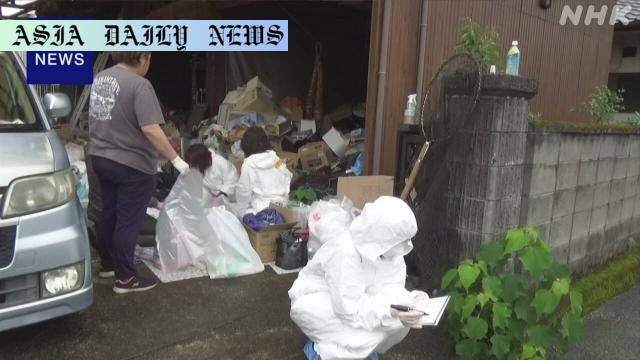Animal Welfare: Authorities discovered more than 100 dead cats in a Japanese volunteer’s home, raising concerns about animal care practices.
Over 100 dead cats were found at a volunteer’s home in Japan.
The woman was known for helping people care for unwanted pets.
Authorities discovered garbage and unsanitary conditions at the site.
The tragic incident highlights gaps in animal welfare monitoring.

Authorities Discover Over 100 Dead Cats in Japanese Volunteer’s Home
In a heart-wrenching discovery, officials in Kumamoto, a city located in southwestern Japan, uncovered a tragic scene involving over 100 dead cats found in and around the home of a volunteer who worked to protect abandoned animals. This unsettling revelation has shed light on the challenges and complexities of animal welfare, particularly concerning the responsibilities of volunteer groups and their oversight mechanisms.
The incident came to light after a couple reported the death of their cat, which they had entrusted to the volunteer for care. Following this report, representatives from the city’s animal protection center, along with police and members of an animal welfare group, visited the woman’s residence. Upon arrival, they were met with a distressing sight—numerous dead cats and garbage scattered throughout the house. The volunteer’s explanations remained ambiguous, as she expressed being uncertain about how the situation spiraled out of control.
Examining the Tragedy: The Role of Volunteers in Animal Care
The woman involved had been working as part of a volunteer group dedicated to rescuing and caring for cats from individuals who could no longer provide for them. This discovery has prompted serious concerns about the level of supervision and support extended to volunteers who take on such emotionally and logistically demanding responsibilities. While her intentions may have been altruistic, the scale of neglect and mismanagement raises questions about the checks and balances within such associations.
Volunteers play a significant role in animal rescue efforts, often shouldering responsibilities that would otherwise overwhelm formal animal protection centers. However, insufficient oversight and lack of resources can lead to situations where well-meaning individuals are unable to manage the scope of their commitments. This event serves as a stark reminder of the importance of providing adequate training, support, and resources to those tasked with animal welfare duties.
Implications for Animal Welfare in Japan
This tragic incident has far-reaching implications for animal welfare policies in Japan. It exposes a critical gap in the system: a lack of periodic monitoring or intervention for high-risk cases involving animal caregivers. The volunteer organization involved has issued a formal apology, acknowledging their failure to recognize the gravity of the situation sooner. They emphasized their commitment to learning from this tragedy and taking concrete measures to ensure such incidents do not happen again.
On a broader scale, this case highlights the urgent need for stricter regulatory frameworks surrounding animal welfare groups. Whether through frequent inspections, resource allocation, or community support systems, such measures could help prevent similar occurrences. Moreover, public awareness campaigns could foster a better understanding of the challenges surrounding pet abandonment and encourage responsible pet ownership.
Commentary
Reflecting on the Challenges of Animal Welfare
The discovery of over 100 dead cats in a Japanese volunteer’s home is both tragic and thought-provoking. It shines a light on the immense challenges faced by individuals who take on the noble but heavy responsibility of protecting animals. While the volunteer may have started with good intentions, the outcome reveals a deeper issue in how society supports and oversees such efforts. This incident reminds us that compassion alone is not enough; proper training, resources, and support systems are equally crucial to ensuring animal welfare.
The Need for Accountability and Support
One cannot ignore the broader systemic issues at play here. Animal welfare work is emotionally taxing and often lacks sufficient institutional backing, leaving volunteers to cope with overwhelming responsibilities alone. This tragedy underscores the need for organizations to establish robust accountability measures and provide continuous support to their volunteers. By ensuring that caregivers are equipped to handle their roles, we can minimize the risks of neglect or mismanagement that lead to such outcomes.
Using Tragedy as a Catalyst for Positive Change
While the incident in Kumamoto is undoubtedly heartbreaking, it also presents an opportunity for growth and reform within the animal welfare sector. Authorities, organizations, and communities must come together to address the gaps exposed by this case. Whether by improving policies, increasing funding, or offering public education on responsible pet ownership, such measures could serve as a silver lining to this dark event, paving the way for a future where animal care is supported, regulated, and effective.


